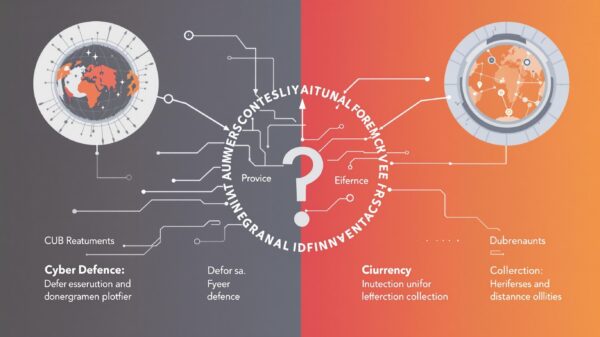Cyber security refers to the protection of computer systems and networks. In the digital age, it has become a necessity, safeguarding crucial data from theft, damage, or disruption.
Types of Cyber Security Programs
Cyber security programs take many forms. There are formal degree programs at the undergraduate, graduate, and doctoral levels. Those looking to specialize can attain professional certifications like CISSP, CEH, CISM, and CompTIA Security+. Online learning platforms also offer a variety of courses.
Bachelor’s degrees can serve as the foundation. Master’s degrees dive deeper into specifics, while doctoral programs include research and special projects. CISSP and CISM often attract seasoned pros. Meanwhile, CEH and CompTIA Security+ offer broad overviews and entry-level qualifications. Online platforms, like Coursera and edX, provide flexible learning for people with full schedules.
Consider When Selecting a Cyber Security Program
When picking a program, personal goals play a significant role. If you want to be a chief information security officer, a master’s degree or higher, along with a CISSP certification, can be beneficial.
Accreditation and reputation matter too. Regionally accredited schools generally meet high standards. A program’s reputation can also enhance your resume when job hunting.
The curriculum is an equally critical factor. It must align with your career goals. It should provide a solid foundation in cyber security principles and also delve into specialized areas such as cryptography or network security.
Program format is the next thing to consider. Traditional on-campus programs foster networking opportunities and direct interaction with professors. Conversely, online formats offer flexibility for balancing work, study, and personal commitments.
One must also factor in the cost. Though the price may be steep for some programs, consider it an investment. Financial aid can also help offset some expenses.

Noteworthy Cyber Security Degree Programs
There are numerous high-quality cyber security programs across the globe. These programs range from bachelor’s degrees to doctoral studies. Some of the most prestigious institutions offer their students comprehensive curricula, skilled instructors, and hands-on learning opportunities. Below we explore several well-regarded cyber security degree programs at different levels.
Bachelor’s Degree Programs
Norwich University: Norwich University’s Bachelor of Science in Cyber Security program offers both on-campus and online options. It emphasizes computer forensics, intrusion detection, and incident response. The program is designed to help students gain the essential skills and knowledge necessary for securing and defending networks.
Maryville University: Their online Bachelor of Science in Cyber Security program combines technical knowledge with a focus on risk management. Students learn about security architecture, data protection, and network protection. Maryville graduates have a strong foundation to pursue specialized certifications in the field.
Master’s Degree Programs
Carnegie Mellon University: The university’s highly respected Heinz College offers a Master of Science in Information Security Policy and Management (MSISPM). This full-time, on-campus program integrates topics such as technology, management, and policy. Students receive a comprehensive education and are well-prepared to dive into the cyber security industry.
University of Southern California: The Viterbi School of Engineering offers a Master of Science in Cyber Security Engineering. It covers areas like cryptography, threat analysis, secure software systems, and risk management. Students participate in hands-on lab work and learn the latest techniques in securing computer systems and networks.
Doctorate Degree Programs
University of Maryland: The University of Maryland’s College of Information Studies offers a Ph.D. in Information Science with a concentration in cyber security. This research-based program focuses on challenges in information security management, secure software engineering, and information analysis. The university’s faculty is renowned for research and scholarship in the field.
Cranfield University: This UK-based university offers a Ph.D. in Cyber Defence and Information Assurance. As a defence-focused institution, it specializes in areas like cyber security engineering, cyber threat intelligence, and digital forensics. The faculty consists of experts from both industry and academia, providing students with a well-rounded learning experience.
The aforementioned cyber security degree programs have a strong reputation for their curriculum, faculty expertise, and research. While deciding on a program, it is essential to consider your career goals, the program’s content, format, and resources available. Invest your time and resources wisely, and you will find yourself on the path to a rewarding and successful career in the rapidly growing field of cyber security.
Cyber Security: An Evolving Field
An undeniable and challenging aspect of cyber security is its dynamic nature. New threats and technologies are always emerging. It necessitates the continuous learning and development of skill sets. Keeping up with current updates, learning about fresh threats, and staying informed about modern technology are all part of the job.
Collaboration and information sharing are vital toward maintaining a high level of cyber security. In the face of new threats, it is increasingly necessary for cyber professionals to work together, sharing information and strategies.
Conclusion
In summary, cyber security programs are crucial in arming professionals with the skills needed to protect our virtual world. It’s an investment in bridging the gap between the increasing need for cyber security and the dearth of qualified professionals. The right program can open a world of opportunities, provided you invest your time and resources wisely. There’s no better time than now to take that first, decisive step toward a safer digital future.






















